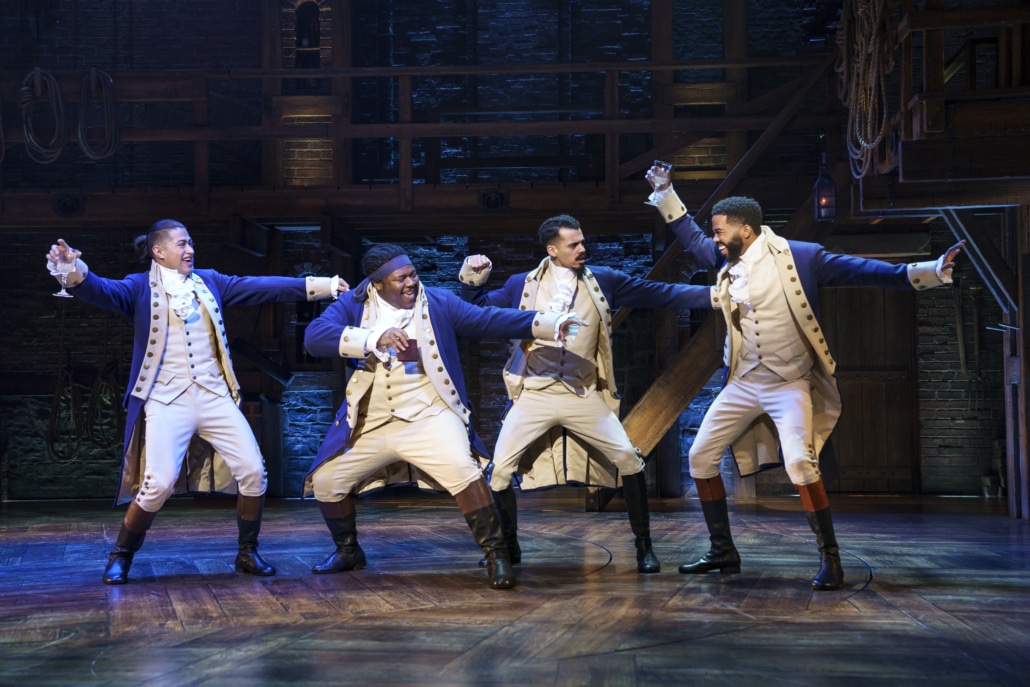DCPA NEWS CENTER
Enjoy the best stories and perspectives from the theatre world today.
Enjoy the best stories and perspectives from the theatre world today.
Put on the soundtrack to your favorite musical or listen to the latest album by a favored pop star to feel the difference a song makes. Does the music elevate the mood, get you going, or perhaps, relax you? There’s so much power when it comes to music, so it’s not surprising this art form is used to help in the healing process and rehabilitate patients too.
That’s where music therapy comes in. For Angela Wibben, a board certified music therapist with UCHealth University of Colorado Hospital, she knows a piano concerto or rock ballad isn’t a cure for illness or injury, but it can help. Especially when incorporating Broadway hits.
“People naturally pair movement with music, like working out, dancing, tapping our feet, and we even find ourselves moving to the beat of a song we may be listening to as we walk down the street,” said Wibben. “Studies find that when we listen to music we run farther, pedal faster, and exercise longer, so it’s the perfect motivator and in a way, the perfect positive distraction from our own discomforts in order to keep going when the going gets tough.”

The company of HAMILTON Broadway National Tour. Photo by Joan Marcus
What is Music Therapy?
“In the hospital, we provide assessments, design music interventions, and create treatment plans to support patients and families with things like pain management, anxiety reduction, emotional and self-expression,” said Wibben. “We are providing avenues for coping with their illness and hospitalization, or to address rehabilitation needs.”

Stephen Christopher Anthony as Evan Hansen and the North American touring company of DEAR EVAN HANSEN. Photo by Matthew Murphy, 2019
According to Wibben, music therapy is only done by board-certified therapists. To treat a patient they use music experience and musical tools to help the clients work through different aspects of care: physical, emotional, social functioning, or cognitive therapy. Music therapy is based on neuroscience and how music can impact and change the brain, as well as the psychology of music for well-being. Music interventions are used to accomplish personal goals and outcomes.
“People of all backgrounds, ages, and cultures can respond to music, and to music therapy,” said Wibben. “Sessions may include things like relaxing to music, discussing lyrics, improvising, playing instruments or singing, creating musical keepsakes, or writing songs.”
Best part, she said, you don’t have to be able to play a musical instrument or sing well in order to benefit.
The Music
Because the music we listen to is highly individualized based on who we are, the choices for what music to listen to prove endless.

(l to r)Devon Goffman, Jon Hacker, Eric Chambliss and Matt Faucher in JERSEY BOYS. Photo by Joan Marcus
“Music therapy research tells us that the most effective music in therapy is music that is familiar, and not too complex or too simple, which, as you can imagine, varies dramatically for everyone,” added Wibben. “I like to say that my patients are the experts regarding their musical preferences, habits, and relationships with music.”
Things to keep in mind include what you listen to, when you listen, where you listen and why you listen.
“I believe what people are listening to is often a reflection of what is meaningful to them in the moment or meets us in what we need based on our mood or the activity we’re engaged in,” she said. For example, she added, do you need to process some heavy emotions? Or listen to something to help get motivated? Sometimes music is about taking a stroll down memory lane. And, consider what kind of setting the music might make for a gathering of friends or family.
Why Music Is Important

Naomi Rodgers as ‘Tina Turner’ in the North American touring production of TINA – THE TINA TURNER MUSICAL. Photo by Matthew Murphy for MurphyMade, 2022
“The power of music has been evident since the earliest days of humankind and we can all use music for recreation, entertainment, enrichment, connection, and/or motivation,” said Wibben. “That’s what makes music an excellent therapy tool, and also speaks to the therapeutic value that music adds to our everyday lives outside of the clinical music therapy setting.”
Wibben shared one of her favorite quotes from a pioneer of the music therapy profession, Kenneth E. Bruscia. He wrote, “Songs are ways that human beings explore emotions. They express who we are and how we feel, they bring us closer to others, they keep us company when we are alone….They are our musical diaries, our life stories. They are the sounds of our personal development.”
Best Songs For Music Therapy
Because everyone is so different there isn’t a single song or even genre that resonates best with patients. For Wibben, she found in her practice the patients respond most to music they’re familiar with and enjoy.

The Company in the National Tour of WICKED. Photo by Joan Marcus
“This can be a moving target since we all experience a range of emotions and activities throughout the day, especially in a hospital,” she said. Still, some examples of meaningful songs she has found effective in-patient care include: “Country Roads Take Me Home” by John Denver, “Let it Be” by The Beatles, “Make You Feel My Love” by Bob Dylan, “I Won’t Back Down” by Tom Petty and the Heartbreakers, and “Rise Up” by Andra Day.
“But really,” she added, “there are so many because I meet all kinds of people from all walks of life.”
How Broadway Music Plays a Part
When using show tunes to help motivate an exercise therapy class, Wibben suggested starting slow with a gradual warm up. Next, change the music to something upbeat to motivate and get moving. Finally, cool down with a relaxed tune.

Lauren Patten and Morgan Dudley in JAGGED LITTLE PILL. Photo by Matthew Murphy
DCPA curates playlists exclusively for UCHealth patients, and one of the recent additions includes a few songs from the upcoming Broadway season: “You Will be Found” from Dear Evan Hansen, “Seasons of Love” from RENT, “December 1963 (Oh, What A Night)” from Jersey Boys, “River Deep, Mountain High” from TINA — The Tina Turner Musical, “All I Really Want” from the Alanis Morissette musical Jagged Little Pill, “My Shot” from Hamilton, “Defying Gravity” from Wicked, and ending with “Climb Ev’ry Mountain” from The Sound of Music.
“I believe music, and music listening, can be an excellent exercise for gaining deeper personal understanding and self-awareness of creative, emotional, self-expressive, and/or rehabilitative outlets for most anyone,” said Wibben. “One of the incredible things about music is that it’s one of the universal cultural features of all human societies and it’s an integral part of the human experience.”
No matter if you’re sick or injured or not.
